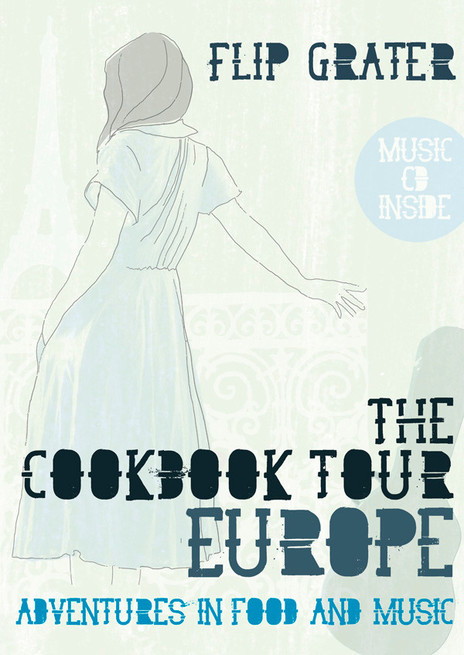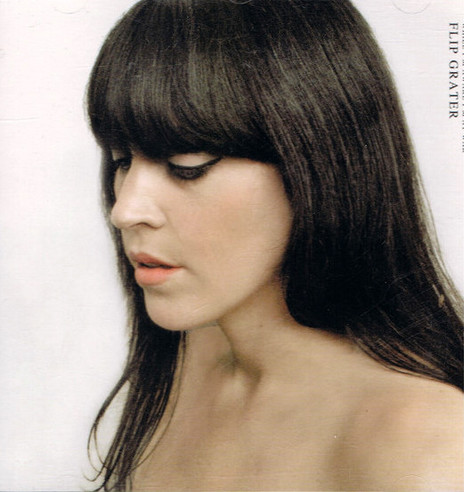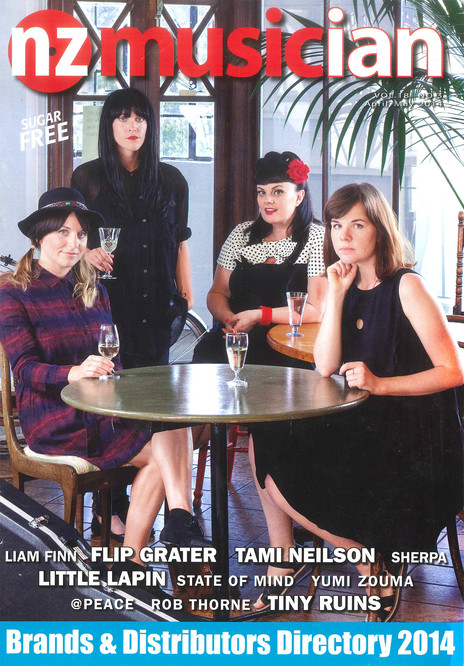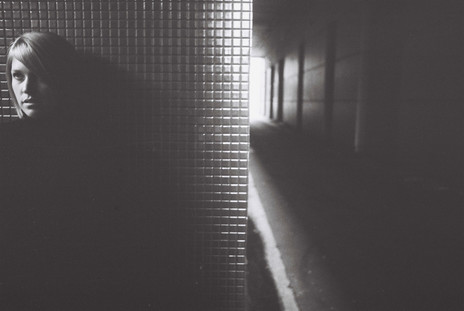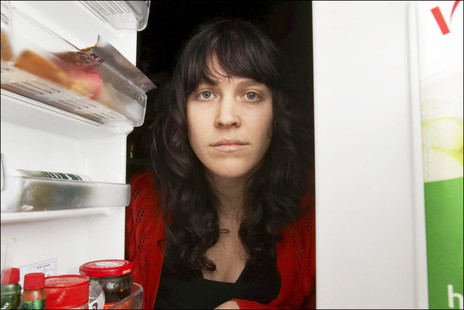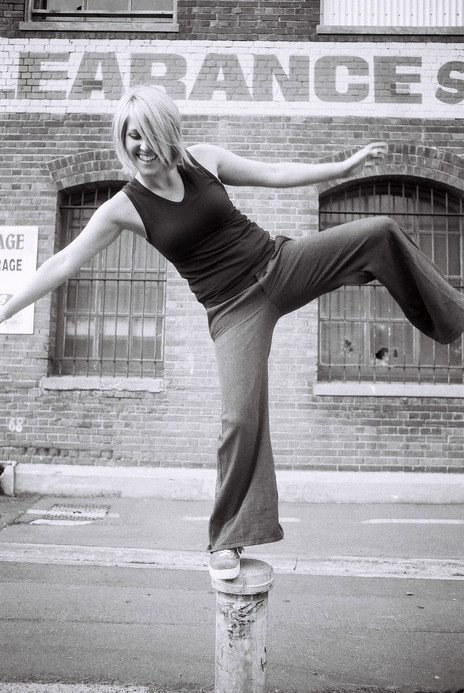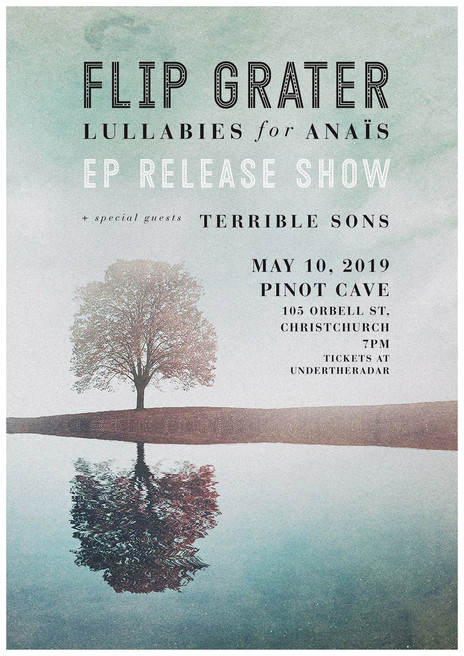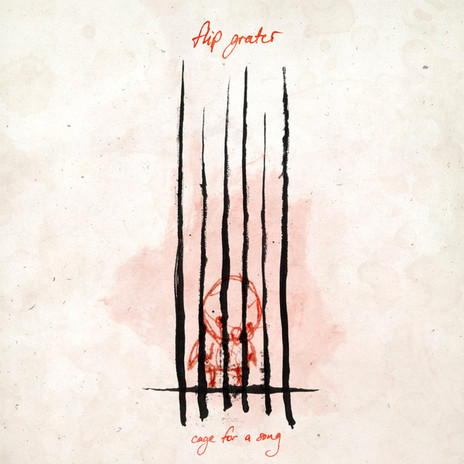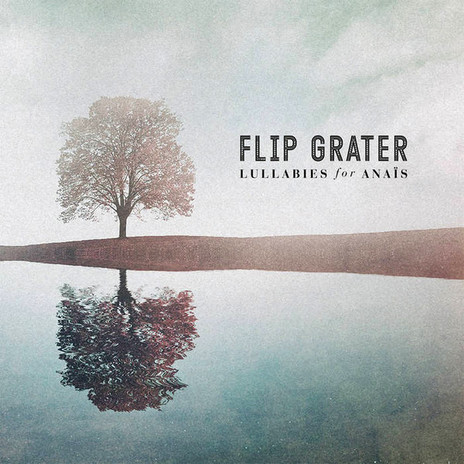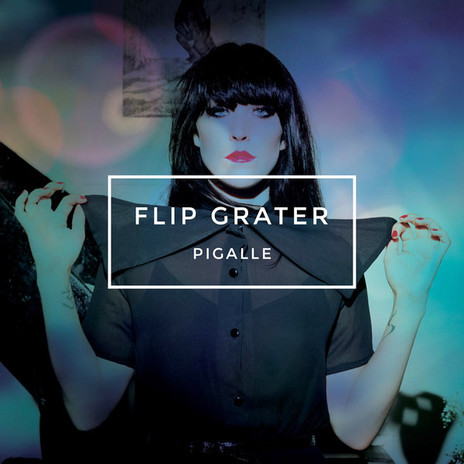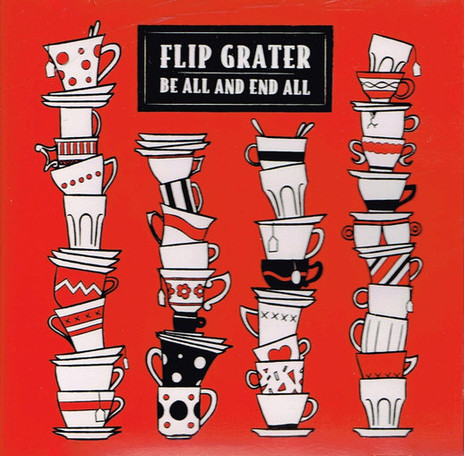Born in 1981, Clare Grater was one of five siblings growing up in the Parklands suburb of Christchurch. Her family were involved in a progressive Christian community with like-minded people. From an early age, singing was associated with faith, but her first experiences weren’t particularly enjoyable. It was when her father introduced her to the lower register of Bob Dylan and Tracy Chapman that she discovered her dislike of singing in church was partly because it was in the wrong key for her. With her newfound knack, her father, who played in the church band, taught her guitar.
She adopted the nickname Flipper from her DOLPHIN activism, shortening it to Flip.
At 15 Grater became passionate about animal rights. Changing to a plant-based diet, she got involved in a project to protect Hector’s dolphins by banning drift nets off Banks Peninsula. She adopted the nickname Flipper from her activism, shortening to Flip.
Her culinary skills were prompted due to her mother’s refusal to cook her a separate vegan meal. Grater recalls the first vegetarian meal she prepared was a Simon and Alison Holst fried rice recipe from Simply Vegetarian. It featured the very nostalgic frozen pea.
In the introduction to The Cookbook Tour Europe: Adventures in Food and Music (2011), she recalls writing her first song a few years after discovering the joys of vegetarian cooking. Her early music was angst fuelled, stemming from the despair of being a young woman. She remembers playing it to an older man who became visibly uncomfortable at the lyrical content.
After high school, she became involved in outdoor recreation, teaching snowboarding, rock climbing and raft guiding. She moved to Australia and then to Sweden with her first love. Returning home, she channelled that heartbreak into songwriting and began performing her music at 21.
Soon she was working as a DJ at Christchurch’s RDU station – an occupation that she jokingly describes as her last real job. She shifted her spiritual values after a workmate invited her to attend a local Buddhist centre. For her, the Buddhist philosophy was helpful and made sense. Buddhism would also later influence her songwriting process.
With the trend towards self-releasing music in the 2000s, Grater decided to establish her own label as she couldn’t find one that felt right and fitted for her scale. She saw it as an opportunity of being more productive and independent, without an abundance of paperwork. The label, named Maiden Records, would later release the work of Urbandtramper and Marlon Williams’s earlier band, The Unfaithful Ways.
Grater released her first EP, called The Nameless EP, and in 2006 she played at South by Southwest music festival in Austin, Texas. The same year she released Cage For A Song, a full length album with a mixture of folk and raw, alternative music.
While driving back with friends from a holiday in Kaikoura in her newly purchased 1988 Lada stationwagon, Grater revealed her burning desire to be a cookbook author. One of her friends pitched the idea that she merge her upcoming release tour of Cage For A Song with writing recipes and collecting them from people that she had meet along the way.
Beginning from Oamaru and touring a combination of small towns and cities, Grater embarked on a solo tour in her car. The book is a collection of stories, anecdotes and recipes passed along from audience members. The recipes are unfussy and easy to make as they were scribbled down from memory onto napkins. The Cookbook Tour features 47 recipes and offers a snapshot of New Zealand subculture, specifically the music scene in the mid-2000s. One honourable mention takes place at the now-closed Wellington establishment, the Matterhorn. After an interview for TV3’s Nightline, budding journalist Samantha Hayes shared her recipe of stuffed mushrooms and offered Grater her place to crash after her gig.
Grater’s next album was Be All and End All. Ben Edwards, who has worked with Aldous Harding, Marlon Williams and Nadia Reid, engineered the album. Among 12 vocalists it features Anita Clark (aka Motte), and it showcases Grater on piano. Buddhist values and ideas inspired some songs on the album.
Grater performed in seven countries and conquered her fear of trains.
Following the success of her last book, it was time to tour the album internationally. Beginning in an autumnal London, Grater performed in seven countries and conquered her fear of trains, travelling with friend and booking manager Liz Smith.
Grater went truffle hunting in Italy, took vegetarian cooking classes in Paris and acquired legal delights in Amsterdam. The book includes a five-track CD with songs from Be All and End All and lyrics that parallel her experiences. It features her vegan variations of European dishes that are traditionally known for being heavy in animal products.
After her international tour, Grater returned home and was offered local collaborations with various musicians. She joined the Fly My Pretties entourage and performed her song ‘I Am Gone’ with the group.
In 2010, Le Tour de Trois (the tour of three) featured French singer-songwriter Marianne Dissard supported by Flip Grater and Delaney Davidson. Davidson had also spent time touring in Europe and the US. Grater saw Davidson as a mentor; he helped her with performance and faking confidence on stage. She described the tour as a “Euro-country concoction” as the three had some connection to European and Americana music.
In 2011, she began writing a large portion of songs for her next album between Italy and the Wairarapa. The album is self-reflective of her experiences, with conflicting themes of suffering and happiness. Notably, the song ‘Exit Sign’ stemmed from her connection to the 2011 Christchurch earthquake. Grater was living in Auckland at the time of the disaster and felt helpless while her family were dealing with the aftermath. The context of the album seemed to fit in with the surroundings. Grater saw Paris as the most beautiful and grimiest city, fitting with the album’s juxtapositions.
Moving to Paris, through mutual friends she met French producer and guitarist Maxime Delpierre. They recorded in Studio Pigalle, in a theatrical district just around the corner from the Moulin Rouge. Grater wanted to make Pigalle different to her last three albums and made a note to “get rid of any girliness”. Grater chose to let go and trust Delpierre’s creative choices. He believed the music had to do the talking.
It wasn’t exactly straightforward. Grater’s manager had left for San Francisco, her booking agent disbanded, she missed out on funding, and on top of that, her guitar was stolen, and a replacement guitar was lost. She survived on a small income from licensing her music to TV shows and the occasional gig. Grater took to crowdfunding, with her first campaign paying for a new guitar, and the second for a new album.
The album took longer than expected and was released in 2014 via French label Vicious Circle and Make My Day Records in Germany. The result was grittier and darker than her previous records, with a Parisian twist.
The themes of the album paralleled her personal experiences. Despite being the most challenging year for Grater, she met Youssef, her future husband and business partner. Residing between Paris and Christchurch, an addition to their family would be her new muse.
The balance between parenting and music would be the next challenge for Grater. In need of support, she started a Facebook group of musician-mothers as there wasn’t anything out there. Many conversations rose from the Facebook group, from tips on touring with children, to scheduling times for writing and enabling creativity. It also gave parents a chance to be vulnerable on a safe online space.
Grater would sing melodies to her daughter in both French and English to help her sleep.
Parenting not only impacted Grater’s routine, it paved the inspiration for her next album. She would sing melodies to her daughter in both French and English to help her sleep. Grater decided to take these melodies and turn them into fully fleshed out lullabies.
She recorded Lullabies For Anaïs at the Wellington home of Brooke Singer (French for Rabbits). As well as being Singer’s first time producing, she also co-wrote the song ‘Keep Your Dreams Close’. Grater was determined to create music that adults could also enjoy. The result was a dreamy, François Hardy flair, to melt away anxiety.
Her next collaboration would take her back to her roots. Curated and directed by old friend Julia Deans, Like Water was a concert for the 2019 Christchurch Arts Festival. The festival wanted to highlight local rather than international talent. Deans assembled a trio with fellow Cantabrians Grater and Bella Kalolo, backed by Burnside High’s choir, the Bel Canto. Deans and Kalolo are alumni of the Bel Canto choir. Margret Atwood’s The Penelopiad, (a feminist retelling of Homer’s Odyssey) inspired the show’s title. The concert explored the strength and vulnerability of women.
Grater continues to have deeply rooted community values – she remains passionate about animal rights and protecting Christchurch’s heritage buildings. During the rebuild of Christchurch, she organised events to help save historical buildings. Together with her husband, she co-owns Grater Goods, a vegan deli and wine bar offering vegan food and hosting music events – and she still cooks recipes from her cookbook tours.
